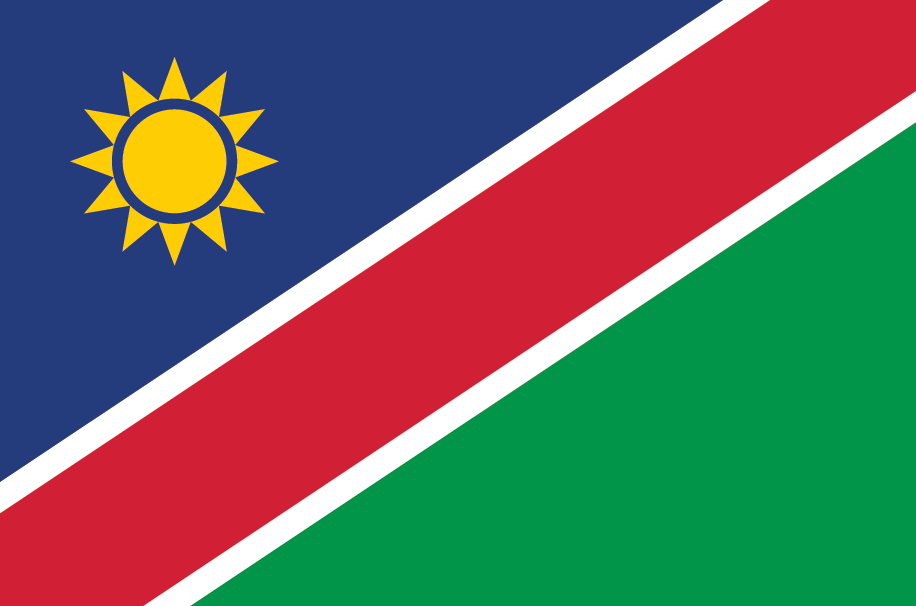
Sustainability Efforts
Country: Namibia
Explore sustainability efforts in Namibia. The United States Environmental Protection Agency (“EPA”) said it well when they state:
“Sustainability is based on a simple principle: Everything that we need for our survival and well-being depends, either directly or indirectly, on our natural environment. To pursue sustainability is to create and maintain the conditions under which humans and nature can exist in productive harmony to support present and future generations.”
About Namibia
Namibia, located in southwestern Africa, is a country known for its vast deserts, stunning landscapes, and rich wildlife. It offers iconic attractions like the Namib Desert, Sossusvlei’s towering sand dunes, and the Fish River Canyon. Namibia’s diverse ecosystems support a range of wildlife, including elephants, lions, and rhinos in Etosha National Park. The country’s indigenous cultures, such as the Himba and San people, add to its cultural richness. Visitors can enjoy activities like desert safaris, quad biking, and skydiving. Namibia’s commitment to conservation is evident in its community-based conservancies and sustainable tourism practices. It’s a destination that combines adventure, natural beauty, and cultural encounters in a truly unique African setting. Sustainability efforts in Namibia will enhance the country’s future.
Sustainability Efforts
Toggle each button below to “open” and “close” the presented data.

Poverty: Namibia's government has implemented several strategies to tackle poverty, including the National Development Plan (NDP), which outlines measures for poverty reduction. Moreover, the government introduced the Food Bank initiative in 2016 to provide food security for impoverished urban households. According to the Namibia Statistics Agency, these efforts have helped reduce the poverty rate from around 70% in the early 1990s to under 30% in recent years.

Hunger: The Namibian government has collaborated with the World Food Program (WFP) to ensure food security for those facing extreme hunger, especially during drought periods. Additionally, the Harambee Prosperity Plan emphasizes enhancing agricultural productivity to combat hunger and promote food self-sufficiency.

Healthcare: Namibia's Ministry of Health and Social Services is making significant strides in healthcare provision. With aid from international organizations such as the Global Fund, the country has made considerable progress in reducing HIV prevalence and expanding antiretroviral treatment. Namibia's healthcare system is now reaching approximately 90% of those living with HIV.

Education: Namibia's government has prioritized education, allocating a significant proportion of the national budget to this sector. The government provides free primary education to promote literacy and has launched the Education and Training Sector Improvement Program (ETSIP) to improve education quality.

Gender Equality: Namibia has enacted several policies to promote gender equality, such as the National Gender Policy, which seeks to mainstream gender in all sectors. The government is also focusing on increasing women's representation in political and decision-making positions.

Clean Water Sanitation: Namibia is prioritizing water and sanitation, despite the challenges posed by its arid climate. The government, along with international donors, has implemented various programs to enhance access to clean water and improve sanitation facilities, particularly in rural areas.

Affordable Clean Energy: Namibia is working towards leveraging its vast solar and wind energy potential. The National Energy Policy aims to have 70% of the country's power demand supplied by renewable sources by 2030, and the government encourages independent power production and investment in renewable energy.

Economic Growth: Namibia's Vision 2030 outlines strategies for promoting sustained economic growth. The government is focusing on diversifying the economy beyond mining by developing sectors such as manufacturing, tourism, and fisheries.

Industry Innovation: Namibia's government recognizes the importance of industry innovation for economic development. The country is promoting innovation through the National Commission on Research, Science, and Technology, which funds research and development initiatives across various sectors.

Reduced Inequalities: Namibia's government has implemented progressive taxation and social safety nets to reduce inequality. It also introduced the New Equitable Economic Empowerment Framework (NEEEF) to promote broader economic participation and reduce wealth disparities.

Sustainable Cities: Namibia's urban policy focuses on sustainability, with efforts to improve housing, transportation, and sanitation in cities. Windhoek, the capital city, is pioneering initiatives in water recycling and waste management.

Responsible Consumption and Production: The government's Environmental Investment Fund finances projects that promote sustainable use of natural resources. Also, Namibia's Sustainable Development Goals (SDGs) Roadmap includes strategies for promoting responsible consumption and production.

Climate Action: As a signatory of the Paris Agreement, Namibia is committed to taking climate action. The National Climate Change Strategy and Action Plan outline strategies for mitigation and adaptation, including increasing the use of renewable energy and implementing climate-smart agriculture.

Aquatic Environment: Namibia's Marine Resources Act regulates the conservation and sustainable use of marine resources. The Benguela Current Commission, a multinational collaboration between Namibia, Angola, and South Africa, also works to protect the regional marine ecosystem.

Natural Environment: Namibia is renowned for its innovative community-based natural resource management, which has been instrumental in wildlife conservation. The government has also designated about 17% of its land as protected areas.

Peace and Justice Institutions: Namibia has a robust legal system that upholds peace and justice. The government's commitment to maintaining peace is evidenced by the country's high ranking on the Global Peace Index.

Partnerships for the Goals: Namibia actively collaborates with international organizations like the United Nations and the African Union to achieve sustainable development goals. The country also receives substantial international aid to support its development initiatives.



